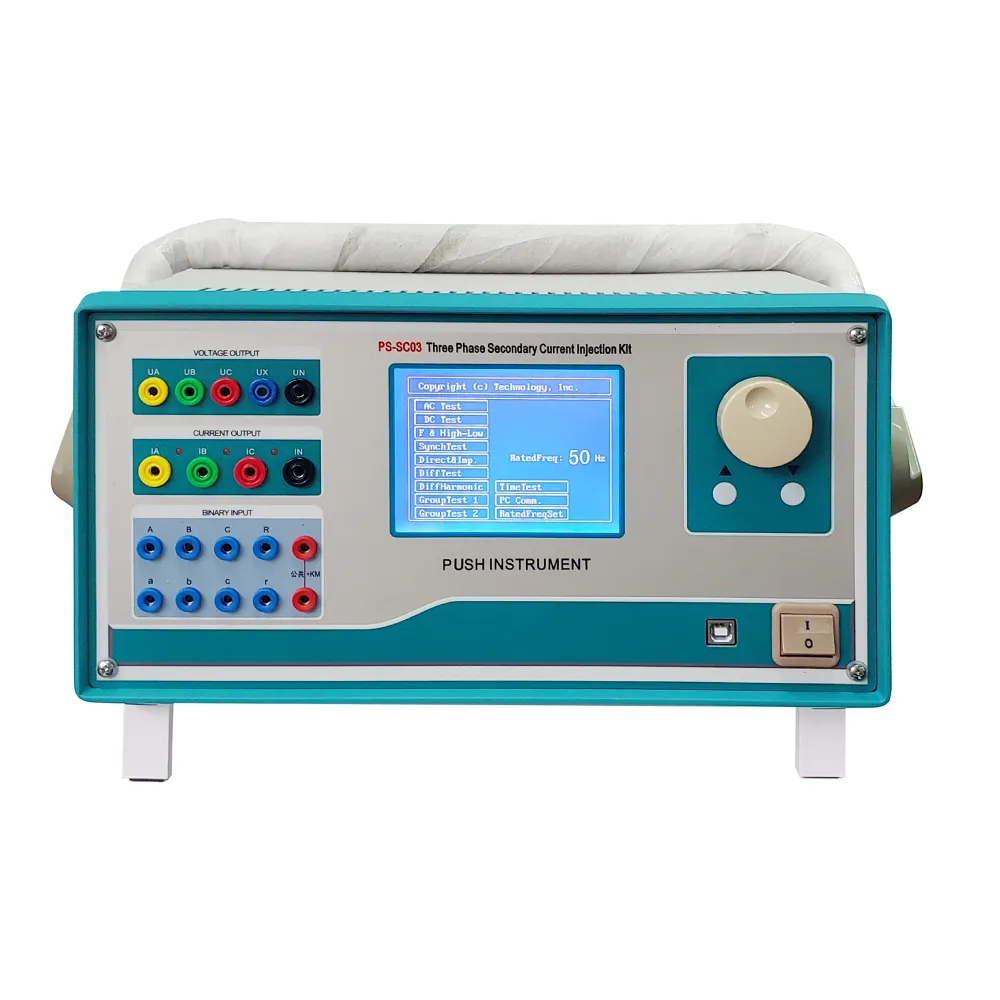 English
English


Moisture Measurement Device for Transformer Oil Quality Assessment
Understanding Transformer Oil Moisture Testers Importance and Applications
In the realm of electrical engineering, the reliability and efficiency of transformers are of paramount importance. One significant factor that can affect their performance is the moisture content in transformer oil. This article delves into transformer oil moisture testers, exploring their importance, functionality, and applications.
The Role of Transformer Oil
Transformer oil serves multiple purposes in the functioning of electrical transformers. Primarily, it acts as an insulator, helping to protect against electrical arcing and short circuits. Secondly, transformer oil aids in heat dissipation, preventing overheating of the transformer. Finally, it acts as a medium for the removal of any gaseous by-products that may accumulate due to operational stress.
However, one of the main threats to the integrity of transformer oil is moisture. Water in transformer oil can lead to various problems, including reduced insulating properties, increased risk of electrical failure, and decreased longevity of the transformer. Therefore, monitoring the moisture content in transformer oil is critical for maintaining the operational efficiency and safety of electrical transformers.
Importance of Moisture Testing
Regular moisture testing of transformer oil is essential for several reasons
1. Preventing Insulation Degradation High moisture levels can significantly reduce the insulating properties of transformer oil, potentially leading to electrical breakdown and failure.
2. Extending Transformer Life By keeping moisture levels in check, operators can prolong the service life of transformers, which represents a major investment in electrical infrastructure.
3. Ensuring Operational Reliability Transformers that operate under optimal conditions are less likely to experience unexpected failures or outages, ensuring a steady supply of electricity.
4. Predictive Maintenance Moisture testing provides valuable data that can inform maintenance schedules, enabling proactive rather than reactive approaches to transformer care.
Transformer Oil Moisture Testers How They Work
Transformer oil moisture testers are specialized instruments used to determine the moisture content in transformer oil. The operation of these devices typically involves one of several measurement techniques, such as
transformer oil moisture tester

- Capacitance Measurement This method utilizes the changes in capacitance that occur due to varying moisture levels in the oil. As moisture content increases, the dielectric constant of the oil changes, allowing for accurate readings.
- High-Frequency Resistance Measurement This technique measures the electrical resistance of the oil, correlating it with moisture content. Moisture alters the resistive properties of the oil, providing a means for quantification.
- Karl Fischer Titration This is a more traditional and highly accurate chemical method. It involves the reaction of moisture with iodine and sulfur dioxide, allowing for precise measurement of water content in transformer oil.
Regardless of the method, modern moisture testers are designed to provide quick and accurate assessments, with many devices capable of delivering readings within minutes. Enhanced models might also feature data logging capabilities, connecting to software for long-term analysis and trend reporting.
Applications of Moisture Testing
The applications of transformer oil moisture testing extend across various industries
1. Power Generation and Distribution Utilities and power companies routinely monitor transformer oil moisture levels to ensure uninterrupted power delivery.
2. Manufacturing In manufacturing setups where large transformers are utilized, moisture testing is crucial to avoid production downtime.
3. Renewable Energy Systems With the growing use of transformers in solar and wind energy systems, maintaining low moisture levels in transformer oil becomes ever more critical.
4. Research and Development Academic and industrial R&D institutions use moisture testing as part of their studies on transformer materials and design improvements.
Conclusion
Transformer oil moisture testers are integral to maintaining the health and efficiency of electrical transformers. By ensuring that moisture levels are closely monitored and managed, organizations can protect their investments, enhance the reliability of their systems, and ultimately deliver a more stable electricity supply. With advances in testing technology, it has never been more feasible to conduct these crucial assessments, making moisture testing a standard practice in the industry. Regular monitoring, combined with proactive maintenance, can safeguard the operational integrity of transformers for years to come.
-
Differences between open cup flash point tester and closed cup flash point testerNewsOct.31,2024
-
The Reliable Load Tap ChangerNewsOct.23,2024
-
The Essential Guide to Hipot TestersNewsOct.23,2024
-
The Digital Insulation TesterNewsOct.23,2024
-
The Best Earth Loop Impedance Tester for SaleNewsOct.23,2024
-
Tan Delta Tester--The Essential Tool for Electrical Insulation TestingNewsOct.23,2024





